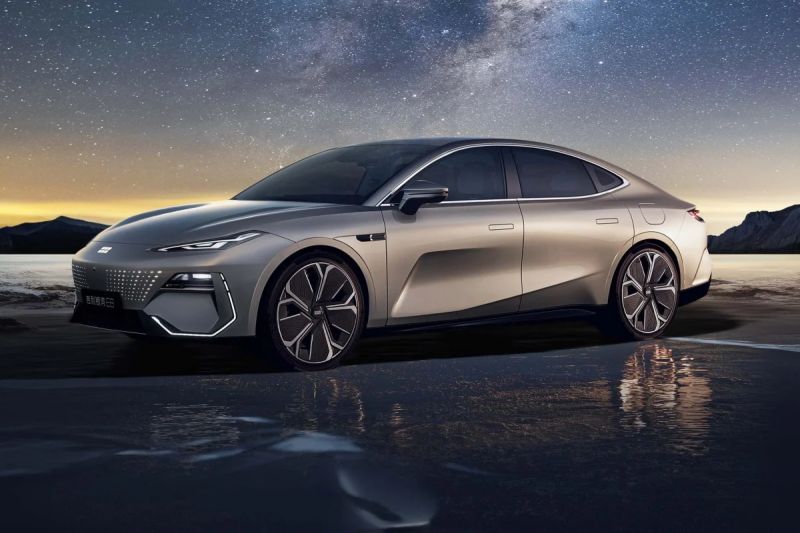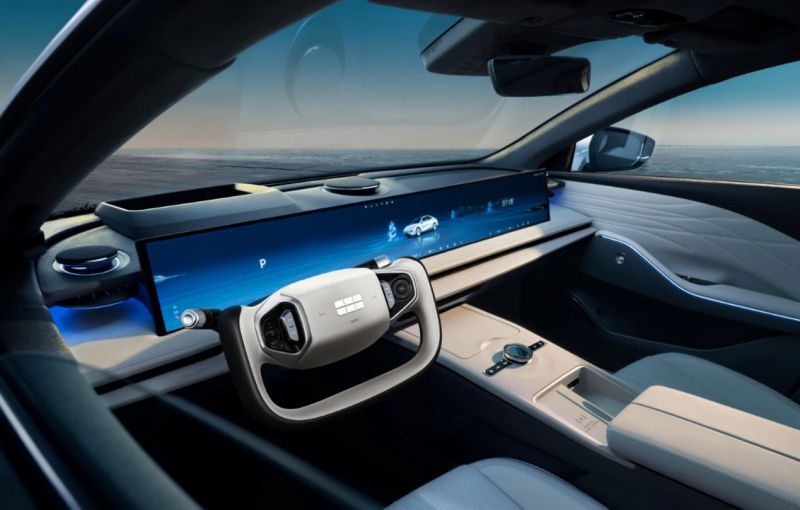The Galaxy E8 sells for almost about US$25,000, nearly US$5,000 less than BYD’s Han model
Geely plans to offer seven models under the affordable Galaxy brand by 2025, while its Zeekr brand targets more affluent buyers

Geely Automobile Group, one of China’s largest private carmakers, has launched a pure electric sedan under its mass-market brand Galaxy to take on BYD’s bestselling models amid intensified competition.
The basic edition of the E8, with a driving range of 550 kilometres, sells for 175,800 yuan (US$24,752), 34,000 yuan lower than the Han electric vehicle (EV) built by BYD, which has a range of 506km.
Hangzhou-based Geely will begin delivering the Class B sedan in February, hoping to target budget-sensitive mainland motorists, according to the company’s CEO Gan Jiayue.
“In terms of safety, design, performance and intelligence, E8 proves to be superior to all blockbuster models,” he said during a media briefing after a launch ceremony on Friday. “We expect it to be an ideal model to replace both existing petrol and electric cars.”

Geely lowered the price of the model by 12,200 yuan from its 188,000 yuan pricing on December 16 when presales started.
Based on the company’s Sustainable Experience Architecture (SEA), the E8 is also its first full-electric car, following two plug-in hybrid vehicles – the L7 sport-utility vehicle and the L6 sedan – launched in 2023.
The company plans to manufacture and sell a total of seven models under the Galaxy brand by 2025. The cars will be more affordable for mainland consumers than the company’s Zeekr-branded EVs, which compete against premium models built by companies like Tesla, Gan said.
Its parent, Zhejiang Geely Holding Group, also owns marquees including Volvo, Lotus and Lynk. Geely Holding has a nearly 6 per cent share of mainland China’s EV market.
The E8 uses a Qualcomm Snapdragon 8295 chip to support its intelligent features such as voice-activated controls. A 45-inch screen, the biggest in a Chinese-made smart vehicle, is supplied by display panel manufacturer BOE Technology.
At present, the Class B sedan category in China is dominated by petrol-powered models from foreign carmakers such as Volkswagen and Toyota.
BYD, the world’s largest EV maker, backed by Warren Buffett’s Berkshire Hathaway, delivered a total of 228,383 Han sedans to Chinese customers in 2023, up 59 per cent on year.
Sales of battery-powered vehicles in mainland China are seen as growing 20 per cent year on year in 2024, according to a Fitch Ratings’ report in November, slowing from a 37 per cent rise last year, according to the China Passenger Car Association.
China is the world’s largest automotive and EV market, with sales of electric cars accounting for about 60 per cent of the global total. But only a few makers, including BYD and Li Auto, are profitable.
A new round of price cuts is in effect, with top players like BYD and Xpeng offering discounts to lure buyers.
In November, Geely’s parent company formed a partnership with Shanghai-based Nio, a premium EV maker, to promote battery swapping technology as the two companies try to overcome the problem of inadequate charging infrastructure.
Battery-swapping technology allows owners of electric cars to quickly exchange a spent battery pack for a fully charged one.
Post time: Jan-11-2024




